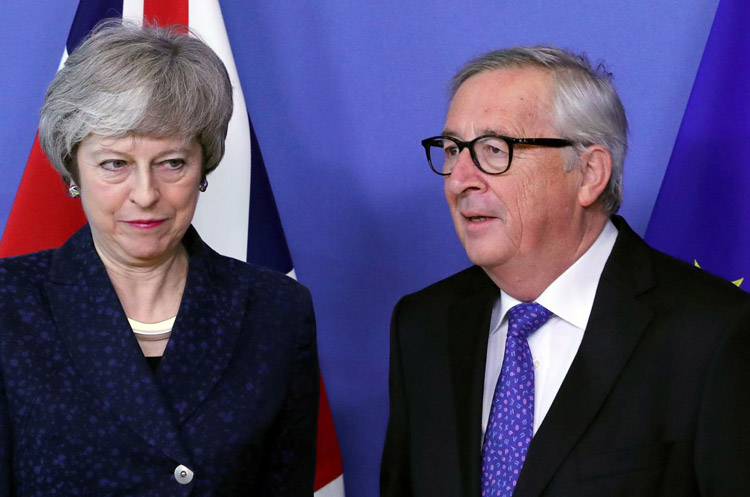Global debt hits record $307 trillion despite rising interest rates, says IIF

Health workers protest on a picket line as junior and senior doctors in England take part in a joint strike action for the first time, outside St Thomas’s Hospital in London, Britain, on Wednesday. Reuters
The financial services trade group said in a report that global debt in dollar terms had risen by $10 trillion in the first half of 2023 and by $100 trillion over the past decade.
The latest increase has lifted the global debt-to-GDP ratio for a second straight quarter to 336%. A slowdown in growth, alongside a deceleration in price increases, have caused nominal GDP to expand less slowly than debt levels and were behind the debt ratio rise, the report said.
“The debt-to-GDP ratio actually has resumed its upward trajectory,” said Emre Tiftik, director of sustainability research at the IIF at a news conference.
“Notably this rise comes after seven consecutive quarters of declining debt ratios and it mostly reflects the impact of easing inflationary pressures.”
The IIF said that with wage and price pressures moderating, even if not to their targets, they expect the debt to output ratio to surpass 337% by year-end.
Experts and policy makers have warned in recent months of rising levels of debt, which can force countries, corporations and households to tighten their belts and rein in spending and investments, in turn crimping growth and hit living standards.
More than 80% of the latest build up had come from the developed world with the US, Japan, Britain and France registering the largest increases. Among emerging markets, the biggest rises came from the largest economies, namely China, India, and Brazil.
“For the first time in a long time there’s a better trend among emerging markets than there has been among developed markets,” said Todd Martinez, co-head of the Americas sovereign team at Fitch Ratings, which sponsored the IIF report.
“Developed markets after the pandemic, they’re taking longer to get back to their pre-crisis fiscal positions than EM did, and then a lot of them got hit by this energy shock (from the war in Ukraine).”
The report found that household debt-to-GDP in emerging markets was still above pre-COVID-19 levels, largely due to China, Korea and Thailand. However, the same ratio in mature markets has dropped to its lowest level in two decades in the first six months of the year.
“The good news is that consumer debt burdens appear to have remained largely manageable,” Tiftik said. “If inflationary pressures persist, the health of the household balance sheet, especially in the U.S., will provide a cushion against further Fed rate hikes.”
Markets are not pricing in a US Federal Reserve rate hike in the near future, but the target rate of between 5.25% and 5.5% is currently expected to remain in place until at least May of next year, according to the CME FedWatch tool.
US rates are expected to remain high for a long period, which could pressure emerging markets as needed investment is funnelled to the less-risky developed world.
The Fed is expected to leave rates unchanged on Wednesday, but could signal that it is open to further rate hikes.
HSBC can still grow revenues even after rates peak. HSBC can still grow its global revenues even as central banks look to dial down interest rate rises in their battle against inflation, the bank’s Chief Financial Officer Georges Elhedery told a conference on Tuesday.
Elhedery said balance sheet growth would be difficult in 2023 due to lower demand for loans, but he expected this to change sometime in 2024, with the bank targeting growth in areas including wealth management in Asia.
“In the medium term, we do expect and do have ambition to continue growing (by) mid-single digit percentage points our balance sheet,” Elhedery told an event hosted by Bank of America (BofA).
Elhedery said the bank’s overall loan book was performing well, but he said offshore-booked commercial real estate loans in China had been “severely affected” by recent turmoil, resulting in additional charges booked in the second quarter.
China’s property market has been hit by a liquidity crisis that has impacted several high-profile developers, although two debt deals on Tuesday brought some relief.
Standard Chartered CEO Bill Winters later told the BofA event he predicted further fallout for lenders.
“Banks have not taken all the pain they’re going to take, broadly... including in China, in my opinion,” Winters said.
“We’ve taken the better part of a billion dollars of provisions, and we have a nice healthy overlay,” he added, but said he couldn’t say this was “done” as the situation “isn’t materially improving”.
Agencies







